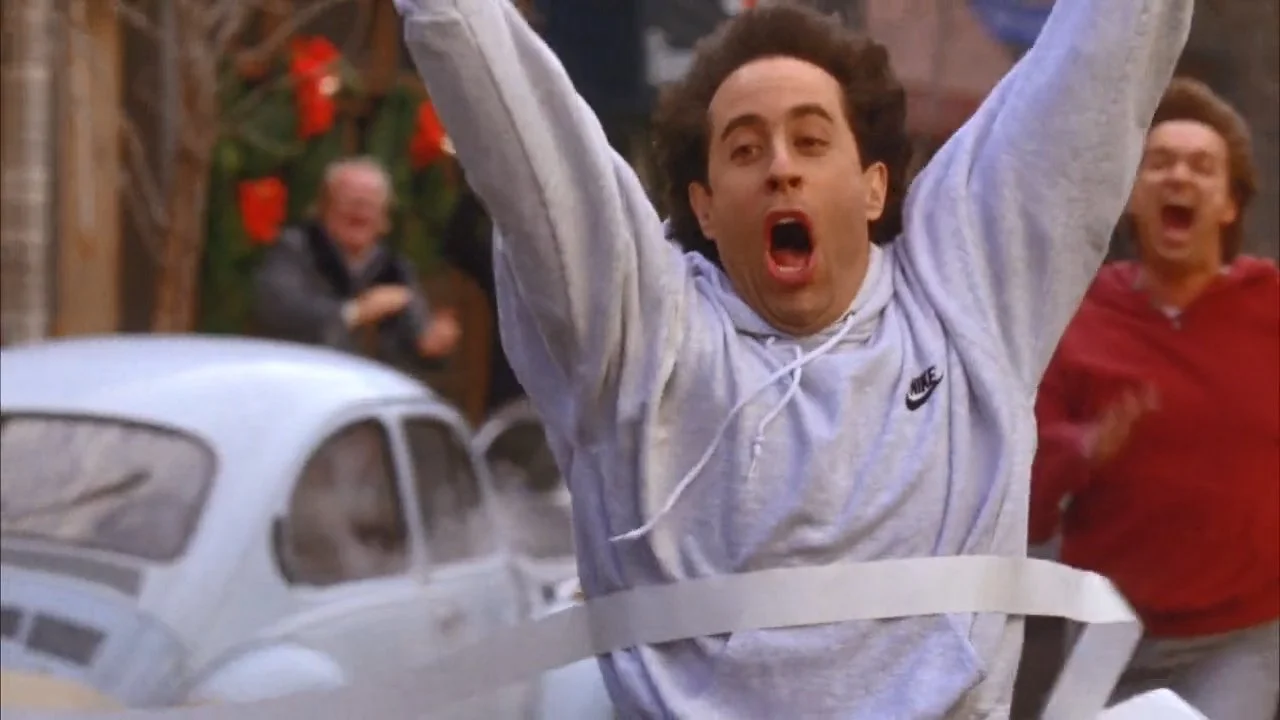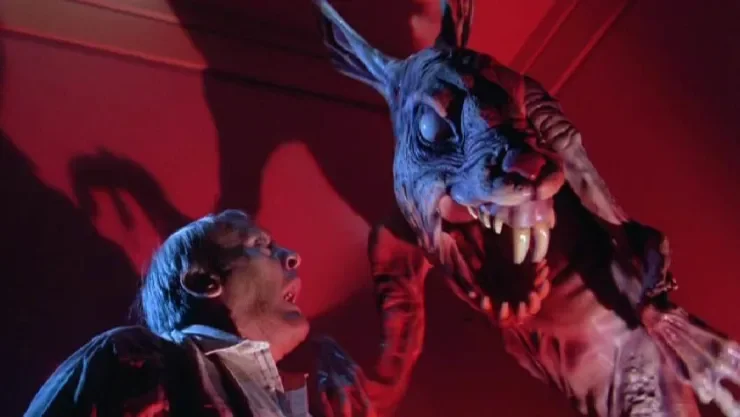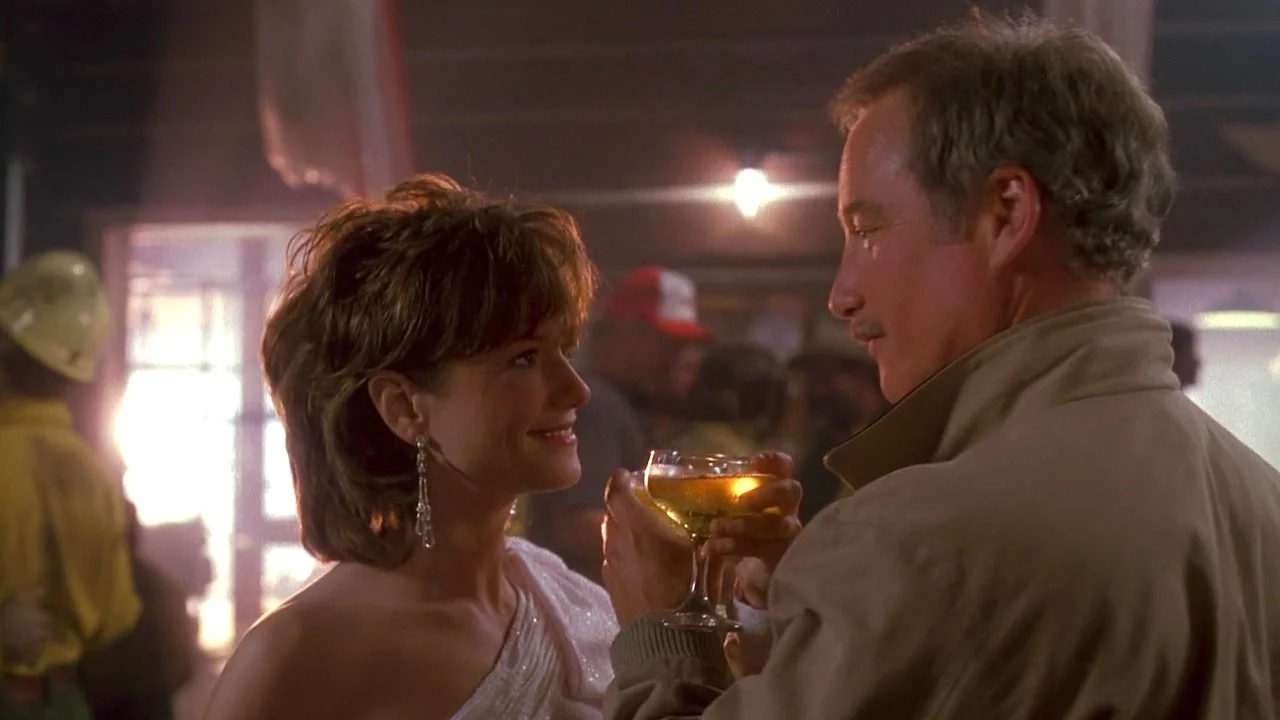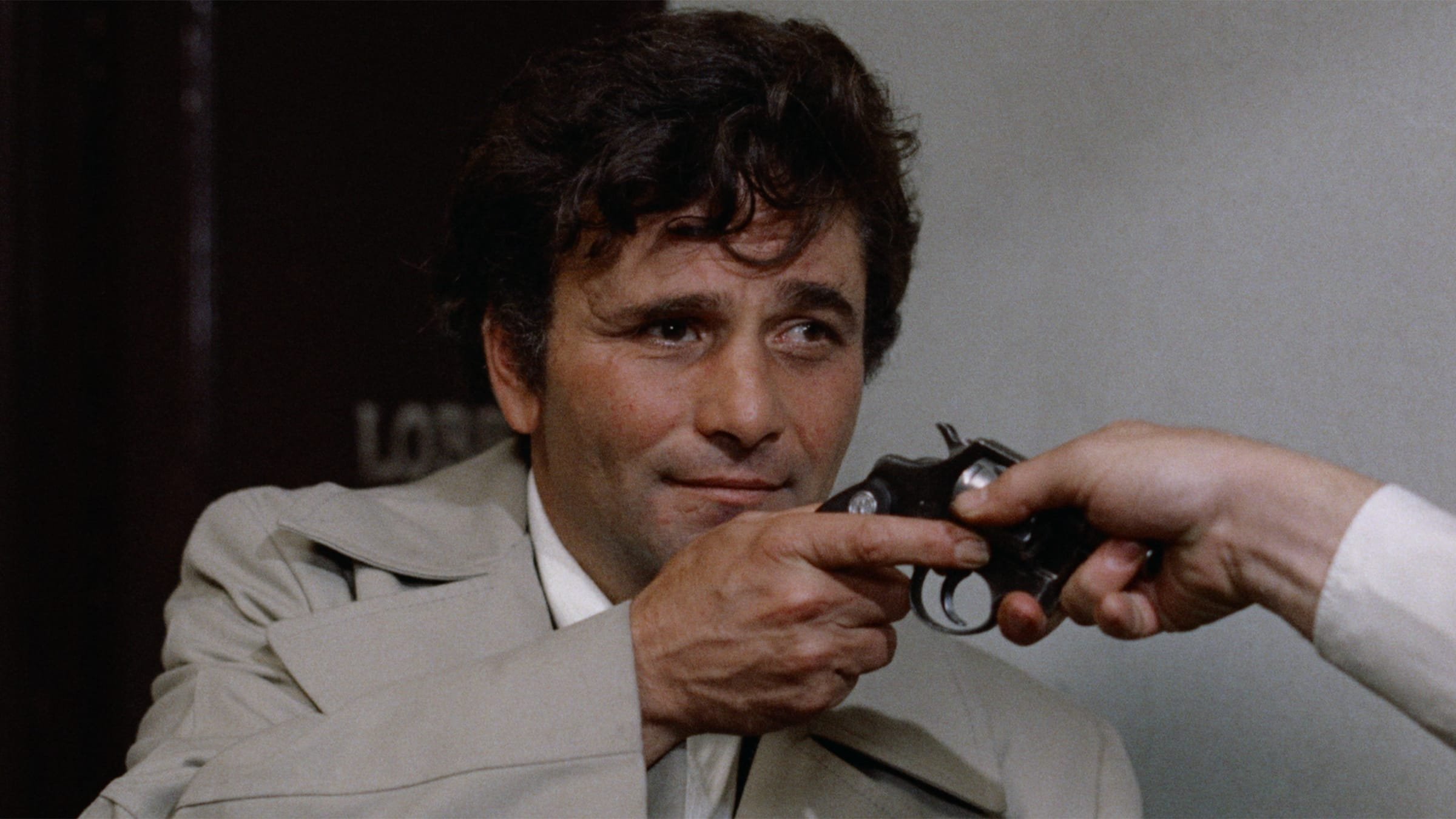Recent Articles
The Enduring Horror of ROSEMARY’S BABY
Today, a quick article on a horror film that still hits like a ton of bricks almost sixty years later. ROSEMARY’S BABY does its effective work amidst the upheaval and resentment of late-60s America; however, you can’t help but notice how little things have changed in the here and now. Happy Halloween!
When you start talking to women about their health-care experiences, a constant theme that emerges is that of dismissal. Their reports of constant and unceasing physical pain is recontextualized as simply emotional reactions, if they’re believed at all. It’s another one of life’s little indignities that make women’s lives arbitrarily harder.
There is no more vulnerable position, of course, that a woman can be than in a state of pregnancy. Studies strongly suggest that a woman has a higher chance of being murdered during pregnancy than she does of dying as a result of the pregnancy itself. You’ll never believe it, but the most common source of maternal femicide is an intimate partner, almost always men. It’s one of the most chilling statistics I’ve ever come across, and it speaks to so many societal pressures and fissures. For whatever reason, women and their wombs are seen as possessions by their male partners, like an asset that can be traded or outright liquidated when the bet turns bad.
That said, it’s not like life is always a bed full of daffodils for men. A man’s world can be a whole other ball of stress, of expectations, of comparison, of having to be masculine and fatherly, to provide amidst severe existential doubt, especially in demanding, personal careers. It’s very, very, very easy to feel like a complete failure when vocational aspirations fizzle out, or take turns, or morph into something nightmarish. When those dark moments occur, there are a lot of dudes out there who would sell just about anything to the devil in order to reverse their fortunes. Probably too many.
Anyway, life is fucking hell. To that end, one of the finest horror movies ever made completely understands this, and it was made by Roman Polanksi, one of the touchiest subjects in all of Hollywood history. Let’s talk about it! Happy Halloween!
ROSEMARY’S BABY (1968)
Directed by: Roman Polanksi
Starring: Mia Farrow, John Cassavetes, Ruth Gordon, Ralph Bellamy
Written by: Roman Planski
Length: 137 minutes
Released: June 12, 1968
Adapted from the 1967 Ira Levin novel, ROSEMARY’S BABY tells the tale of Rosemary and Guy Woodhouse and their fateful encounter with Minnie and Roman Castavet, an elderly couple that live down the hall from them at the Bramford, their new apartment complex (one with a reputation for being haunted by a rumored deep and persistent evil). Guy is a working actor, one with a prominent role in a commercial set to go national. Rosemary is a full time homemaker, with aspirations of motherhood (the title of the movie is a bit of a spoiler in this regard).
A professional setback strikes after Guy gets narrowly turned down for a potentially career-making role in a play, and he takes out his frustrations on Rosemary. He’s not physically abusive or anything (at least not yet), but he develops a penchant for being neglectful and distant in pursuit of work. Thankfully, the kindly-seeming elderly Castavets take the Woodhouses in and seem supportive of Guy’s career and Rosemary’s desire for a family. After a particularly fruitful interaction, fortunes seem to reverse. The actor who got the role over Guy suddenly goes blind and has to drop out. Guy is in. Also…Rosemary is pregnant! By whom is a matter of debate; in one of the most stunning and batshit sequences in the entire film, Rosemary has too much to drink and dreams of being raped by a devilish creature during a nude orgy. The reality of the situation might be even worse; the one who rapes her is her own husband, Guy, having done so while she was unconscious.
Still, once she becomes pregnant, everyone is over the moon, including Minnie, who starts encouraging Rosemary to see their physician, Dr. Saperstein, and giving her vitamin concoctions to drink. Then…Rosemary’s health starts turning. She loses a ton of weight and becomes gaunt. Despite assertions from Guy, the Castavets and Dr. Saperstein, it becomes clear to outside observers that something is wrong. And nobody seems to be treating Rosemary’s persistent pelvic pain, one that’s been going on for months. It’s all completely normal, they tell her….
If you haven’t gathered from the above, the story of ROSEMARY’S BABY is one that wallows in a ton of resentment towards every institution you can think of: the Catholic Church, men, women, motherhood, modern medicine. It’s a deeply, deeply cynical movie, one that could only have been made by Roman Polanski at this particular time in American history, a man who in 1968 hadn’t yet committed any of the sexual crimes he would later be accused and/or convicted of, in case this was something holding you back from watching one of the great horror films of the era, and one that manages to be fairly classy considering its subject matter (one of the least scary things in this movie is a coven of Satanists).
1968 was a turbulent time, both for the country and for Hollywood itself. Six days prior to ROSEMARY’S BABY was released, Robert Kennedy was assassinated by Sirhan Sirhan, the capper to a multi-year run of politically-motivated murders that also claimed Martin Luther King Jr. and the President of the United States. Meanwhile, the old studio system was about to be dead and in the ground after the release of movies like BONNIE & CLYDE and THE GRADUATE. Things were very much in flux, to put it kindly (dancing on a razor’s edge would probably be more fair). It’s in this anger and uncertainty that ROSEMARY’S BABY does its work. There seems to be this strong sense throughout that something isn’t working, that something has irrevocably fractured, and that something very wrong and evil is about to emerge from the cracks.
Of course, this was all context I didn’t really have when I first saw this, probably on TV and probably when I was 13 or 14. It was probably on TCM, probably with a Robert Osborne introduction. I remember finding it interesting, its slow and steady pace captivating even to this young mind. Certainly, by the end, there are enough memorable images (who can forget Mia’s bulging eyes as she finally sees her child?) to make for an unforgettable movie-watching experience. But…at that time, I also remember it feeling a little too alienatingly adult, even a little long.
Given that, it’s notable that the first thing I clocked about ROSEMARY’S BABY this time around (as an alienated adult myself) was indeed its length, a cool 137 minutes. There’s been intermittent but persistent discourse about how long movies should be, usually whenever someone like Coppola, Nolan, or Scorsese releases a new picture (draw your own conclusions as to why that might be). I admit that the creeping increase in the average length of a film is notable. One of the beautiful things about going back to old genre pictures is that you can knock out quite a few of them in a day when they’re 60, 70 minutes a pop. BRIDE OF FRANKENSTEIN is 75 minutes! DUCK SOUP is barely over an hour! On the other hand, when something like Marvel’s ETERNALS clocks in at 156 minutes, you tend to wonder how much money is being spent on dead air.
But, I’ve always ascribed to the philosophy that good movies are exactly the length they need to be. So, yes, even though ROSEMARY’S BABY’s runtime lies at 2 hours and 17 minutes, you never really feel it, nor could you imagine it being a second shorter. Every scene, every frame is dedicated to establishing atmosphere, character, background, or circumstance. It’s one of those movies where you learn tons of information all the time without it ever feeling too overwhelming. Hell, even something as simple as its setting (the majority of the action takes place inside one apartment building) goes a long way towards putting you in the mindset of Rosemary herself: trapped, with no clear way to see daylight. The movie may be long, but not a moment of it is wasted.
The most incredible thing about ROSEMARY’S BABY is how hard its dark punchline lands. After you’ve seen it once, it’s kind of funny how straight-forward the movie really is. Every time you think, “Hmmm, the Castavets are acting really shady”, it’s because they’re being shady. Every time you wonder, “Why is Guy being such an asshole?” well, it’s because he’s working with the Castavets to turn their baby over to the Devil. Whatever horrible thing you’re imagining is happening in the background, in the margins, it’s exactly what’s happening.
But, on an initial watch (or distant rewatch), because everything is happening just outside the view of Rosemary, a character who is essentially in every scene, and because we’re only left to put the pieces together that we have in front of us, they’re just a little room for doubt most of the way as to whether Rosemary’s actually just losing her mind. Maybe the pain in her pelvis was just that and nothing more. Maybe Dr. Saperstein really is treating her to the best of his ability. Maybe Guy is just a scared parent-to-be and handling it badly. Maybe this idea of a coven conspiracy is just the fever dream of an unwell mind.
My favorite moment in this regard actually belongs to Charles Grodin’s Dr. Hill, presented as the “good doctor” to Saperstein’s “evil doctor”. Rosemary sneaks off to his office to explain her findings in witchcraft and lobby her allegations against Saperstein. Hill calmly puts her in an examination room and says he’ll call Mt. Sinai, only for Saperstein and Guy to arrive instead. Did he call them in because he’s a concerned doctor who thinks he’s seeing a decompensating patient? Or is he also part of the coven? Either read is potentially valid. If you submit to it, ROSEMARY’S BABY really draws you into the feeling of intense, violent paranoia.
And then, with minutes left to go, the movie drops the conceit and has everyone just start screaming, “Hail Satan!” It’s a shocking change in philosophy and pace, and it makes you almost want to laugh out of shock, even as your stomach drops into your feet. As Rosemary starts to rock the cradle containing her Antichrist child, perhaps the darkest ending to a movie I can conjure up concludes.
Speaking of Rosemary, it should be stated in no uncertain terms that Mia Farrow’s work in this is simply astounding. It’s a shame that so much of her legacy is wrapped in another complicated artistic monster, because this movie is a perfect example of what made her so special. This cast is filled with heavy hitters. John Cassavetes is so fucking good in this, and probably a more fitting choice than the original guy they had in mind, Robert Redford. I get the thought there, Redford being the ultimate all-American of the era, but nobody expresses male anxiety than Cassavetes. Ruth Gordon is so sweetly terrifying in this, a performance that earned her an Oscar that year. Nobody has quite depicted the cruelty of the American health-care system like Ralph Bellamy (besides maybe Louise Fletcher in ONE FLEW OVER THE CUCKOO’S NEST). Even the aforementioned Grodin is putting in what would end up being an against-type performance as the seeming ally Dr. Hill. Everybody is swinging hard and connecting every time at the plate.
And, yet, none of it would matter if Farrow wasn’t so fucking compelling. The entire movie rests on her. The amount of footage that doesn’t include her is minimal. If we don’t follow her every emotion, if we don’t believe the pain she’s in, the anguish of being so brutally gaslit, of being used, of that maternal instinct still brimming through, even at the bitter end…the movie would cease to exist. It may even come off as absurd claptrap. Occultists? The Antichrist? What world is this, exactly?
But, because Farrow is so utterly perfect in portraying the anguish of a woman being gaslit all the way to hell, it’s made so clear what world we’re in when we watch ROSEMARY’S BABY. We’re in ours.
And that’s horrifying enough.
FOUR WEEKS OF MAY: MIKEY AND NICKY
Elaine May’s third feature is a quiet character-driven masterpiece, despite all the chaos behind the scenes that ran May from the director’s chair for another decade.
My “film journey”, for lack of a less pretentious term, started relatively late in comparison to others in my circles. In fact, I’d argue that it only really got going in earnest a couple of years ago.
Of course, I’ve been watching movies my whole life. When I was a kid, my mom showed me the big works of Disney, Spielberg and Lucas as well as select viewings of Classic Hollywood and pre-code stuff. My grandma opened me up to the comedic charms of the Marx Brothers, Abbott and Costello and the Three Stooges. Between me and my collection of friends, we covered most of the major blockbusters and Oscars bait that the late 90’s and early-mid 2000’s could offer.
But I’m not sure that I really dug into movies as something serious to study until the very recent past. True, I devoured trade magazines like Entertainment Weekly, and dutifully watched Roger Ebert and the villainous Richard Roeper every Sunday night. But this was really more of a way to stay on top of what was coming out, and what movies seemed to be trending upwards or downwards. It wasn’t a way to check out what had come before, or even analyze why I liked what I liked. It was just knowledge, nothing more.
There were several reasons for this paucity of actual viewing experiences. One of them was that watching the classics could be difficult, especially if it was a foreign film, as it often necessitated a trip to the video store and hoping for the best (Netflix’s “DVD by mail” service helped immensely in this regard). The primary reason, however, was that I went through a prolonged “anti-pretension” phase that kicked in around mid-high school and extended itself through, I dunno, like my early thirties or something.
It basically went like this: For the first third of my life, I hesitated to really dig into something that I knew was a passion of mine, lest I come off as a smart-ass know-it-all like the rest of the smart-ass know-it-alls I knew. Of course, this failed to account for the fact that this kind of “fuck the elitists” posturing was itself a form of pretension, the belief that your opinions were simply better than everyone else’s (this also leads very easily into living your life as just the devil’s advocate. People like this thing? It must be shit. I like something? It must be an underrated masterpiece, even if the thing I’m talking about is Spider-Man 2).
Anyway, by the time I hit 30, it dawned on me that, as a result of this kind of time-wasting, there were a lot of classics I just hadn’t seen. There’s still an embarrassingly long list. Even worse, a lot of the friends I have now are very smart film buffs that I just couldn’t follow along with or add to in conversation, the result of years of burrowing into my already-established interests, rather than expanding them.
To make matters even more devastating, I had discovered the much-beloved, now-defunct streaming app Filmstruck much too late, essentially after it had already been discontinued by Warner Media. Here it was, a streaming site that had put selections from the Criterion Collection and Turner Classic Movies potentially at my fingertips for a couple of years and I squandered it, completely unaware it was an option until it was already gone. It’s a terrible thing to find out about retroactively. An easy-to-access doorway to film history and I had blown it.
Enter The Criterion Channel.
For the unfamiliar, it’s what it sounds like: a streaming channel curated by the people behind the Criterion Collection, a pseudo-successor to Filmstruck. At the beginning of 2019, the launch of the app was announced, and an advance mailing list was opened up to the curious. As a lead-up to the app’s launch, a Movie of the Week program was announced. This way, potential subscribers could enjoy a single movie on the prototype platform, typically a movie that would give one an idea of the kind of programming the Criterion Channel would eventually house. I eagerly signed up, not wanting to miss another opportunity. This way, at least it seemed to me, I could start my film education in earnest, one week at a time.
First movie up? MIKEY AND NICKY.
It’s fair to say, then, that this week’s movie is responsible for my curiosity being stoked, and is responsible for the last few years of articles. Feels relevant, then, to revisit it again now for Elaine May Month.
Let’s get started.
MIKEY AND NICKY
Directed by: Elaine May
Starring: Peter Falk, John Cassavetes, Ned Beatty, Rose Arrick, Joyce van Patten
Written by: Elaine May
Released: December 21, 1976
Length: 106 minutes
MIKEY AND NICKY is a fairly simple movie, at least on its face. John Cassavetes is Nicky, a paranoid man holed up in an apartment for reasons that are initially only alluded to, although it seems as if the recent murder of a bookie might have something to do with it. Peter Falk is Mikey, Nicky’s lifetime friend who comes to his aid (not for the first time, it turns out) and just seems exhausted. His relationship with Nicky seems to swing between that of an older brother and of a father. At the beginning of the movie, he force-feeds him medicine; near the end of it, he’s fighting him in the street.
The above premise leads us into that most satisfying of movie genres, that of the night-time odyssey through the streets of a major city, in this case, Philadelphia. Nicky, fearing for his life, wants to constantly be on the move, while Mikey seems most concerned about keeping themselves in one place for reasons that are initially ambiguous. All the while, they appear to be followed by a gangster, played by 70’s perennial Ned Beatty.
MIKEY AND NICKY presents itself as a two-character play for the most part. As they bob and weave from one place to another, we get to see a lot of conversations between our two titular characters. As a result, we gain a ton of insight, implied or otherwise, as to the relationship between the two of them, as well as their own individual lives.
And, boy, do we have two great leads to present this tandem.
I want to first dig into Cassavetes’ work as Nicky. John Cassavetes is known more as an influential independent director now that it’s all said and done, but his career started as an actor. His appearance in MIKEY AND NICKY is interesting to me since the movie itself feels so influenced by Cassavetes’ directorial work; so much of it is close, intimate and honest.
Cassavetes’ Nicky is all tics and neuroses, befitting a man who feels like every moment could be his last. He’s obviously not taking care of himself and has a penchant for rash and impulsive actions, which is why he’s found himself in trouble in the first place. He refuses to do anything to take care of the ulcer he’s obviously suffering from. And most of all, he’s unspokenly suspicious of his only friend (as it turns out, rightly). Cassavetes has a lovely, natural chemistry with Falk, no doubt the result of years of collaboration together.
Peter Falk is yet another one of those guys that I think we all know, but maybe don’t appreciate to the fullest. I’m ashamed to say it, but I’m actually not that familiar with his most famous role, that of Columbo. But I have become increasingly more acquainted with Cassavetes. But, man, is there an emotion that face, that so unique face, couldn’t so subtly register and embody? In a movie that’s all about what’s not being said (like jazz, man), Falk’s portrayal of Mikey is the audience’s emotional Cliff Notes. You are keenly aware of his overlying (and often conflicting) feelings: guilt, exhaustion, genuine brotherly affection, anxiety….it’s all there. I don’t know that the movie would have worked without him.
Both Falk and Cassavetes complement each other’s performances so well. Nicky comes off as so sufficiently tiresome that Mikey’s frustration and exhaustion with a lifetime of being maybe his only friend feels justified and obvious. His eventual betrayal also feels emotionally true, and Nicky slowly sussing out how the night is destined to end without ever truly explicitly confronting Mikey about it is ultimately where MIKEY AND NICKY derives its power.
(May I say how much I like mob movies that are almost exclusively about the lowest rungs on the org chart? So many are about making your way to the top. However, MIKEY AND NICKY there’s much drama to be wrung from the people that are frankly fortunate to even be at the bottom.)
The production of MIKEY AND NICKY was the one that appeared to run May away from the director’s chair for over a decade. Filmed in 1973, the movie wouldn’t be released until 1976, so long and how tense the conflict was between her and Paramount Pictures, her old foes from A NEW LEAF.
Again, May’s budget ballooned quickly; when the movie was being produced by Twentieth Century-Fox, the budget went from $1.6 mill to $2.2, which caused the studio to drop the film entirely, allowing Paramount to swoop in to save the day. Paramount’s involvement came with stipulations, the most vital of which were the $1.8 million budget and the hard deadline of June 1, 1974 for the film to be completed. Well, 6/1/74 came and went, and no completed movie was delivered, although the budget had inflated to almost $4.5 mill.
Part of the extended production had to do with May’s decision to constantly keep the camera rolling, maybe for hours at a time if she deemed it necessary, even when Falk and Cassavetes had long since left the scene (as the famous story goes, a new camera operator got in trouble for calling “cut”; when asked why in the world the take should continue after the actors left the physical set, May replied, “because they might come back”). As a result of this unusual decision, the film has this completely improvisational feel to it, even though it indeed was pretty much entirely scripted all the way through.
I’ve always had mixed feelings about this approach. On the one hand, it does feel wasteful, and I can’t help but understand why Paramount was having a panic attack regarding all this. I also don’t quite understand the point of continuing to roll the camera at the end of the scene if you’re following along with a tight script. Except to say that, as mentioned, MIKEY AND NICKY has this sprawling feel as a result. Even though the film is only 106 minutes, it feels, in the best way possible, like you’re with these two characters the entire twelve or so hours that the story unfolds during. You’ve been through a marathon evening, and I don’t know if the movie would have had the same effect if a more efficient director (say, Clint Eastwood) had directed it. We’ll never know.
Anyway, Paramount took Elaine May to court. Having flashbacks to how everything regarding A NEW LEAF went down, May was determined to not let the same studio butcher two of her movie. She took the extraordinary measure of essentially holding two reels of the movie hostage, storing them in a garage in Connecticut that belonged to a friend of her husband’s. She eventually relented and allowed Paramount to create the final cut, although the experience was devastating enough that she wouldn’t return to the director’s chair for another ten years.
Maybe all of this was the sacrifice needed to make MIKEY AND NICKY what it was. Because interestingly, although I ultimately don’t think it hangs together quite as well as THE HEARTBREAK KID, I think if I had to recommend just one Elaine May film, it would be this one. It illustrates so well the disruptor spirit that May retains to this day. She made a masterpiece by doing it her way, even though her way led her into a courtroom once again, and her treating a random suburban garage like it was WACO or something.
And, more importantly to me, this version of MIKEY AND NICKY ultimately led me to this moment right here, turning this space where I was awkwardly reviewing episodes of SNL or whatever to a space to talk about movies and why they work. It was a joy to run down the streets of Philadelphia again. Do yourself a favor and do the same sometime this week, too.

















